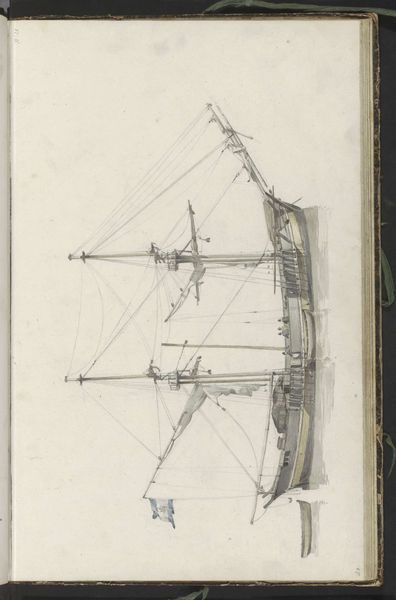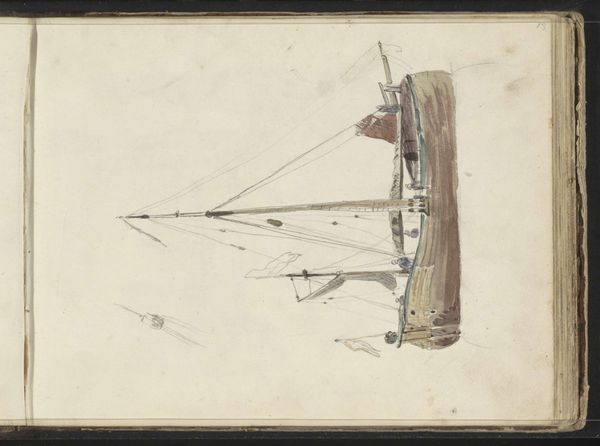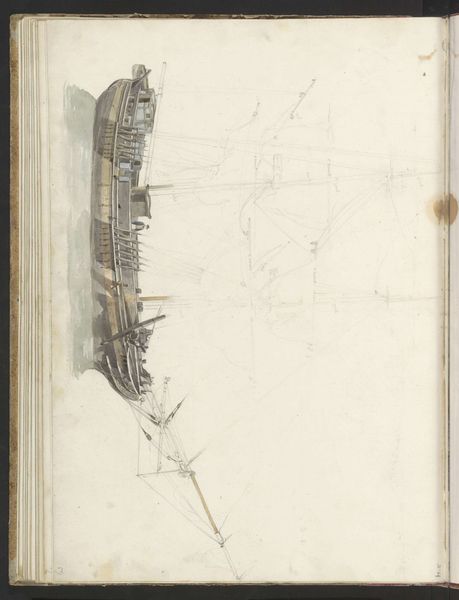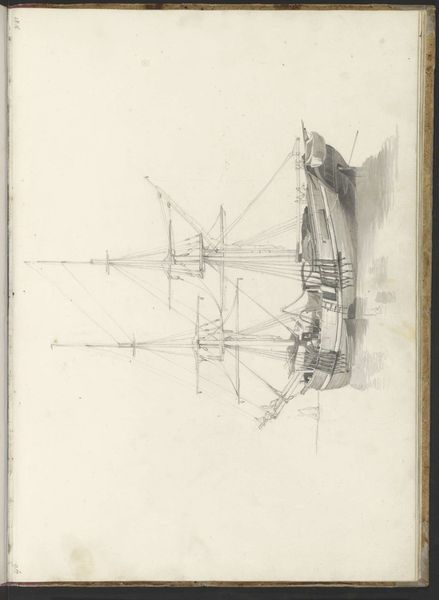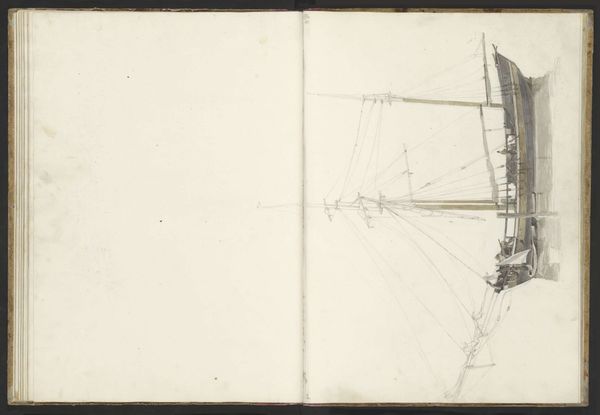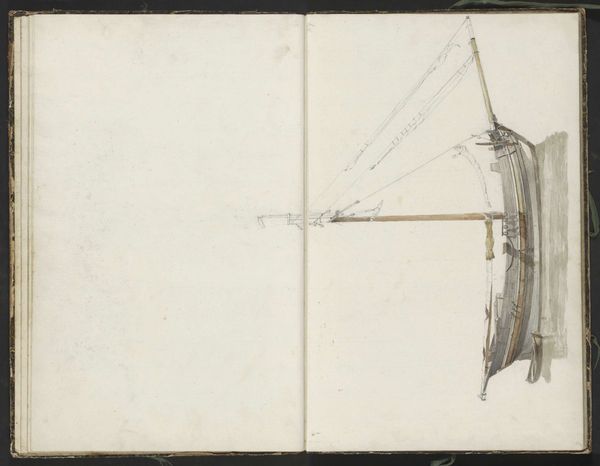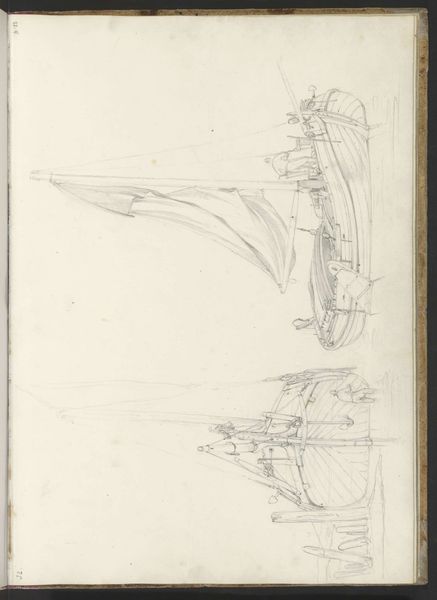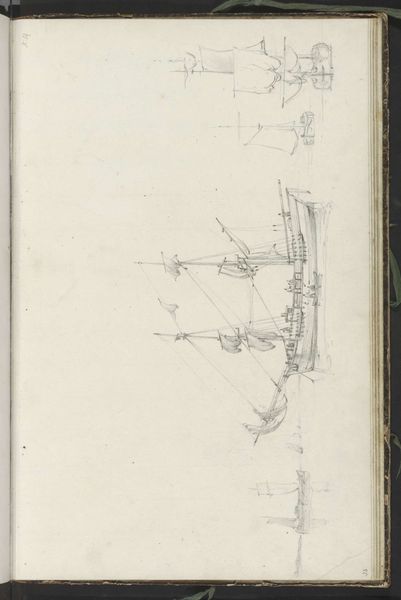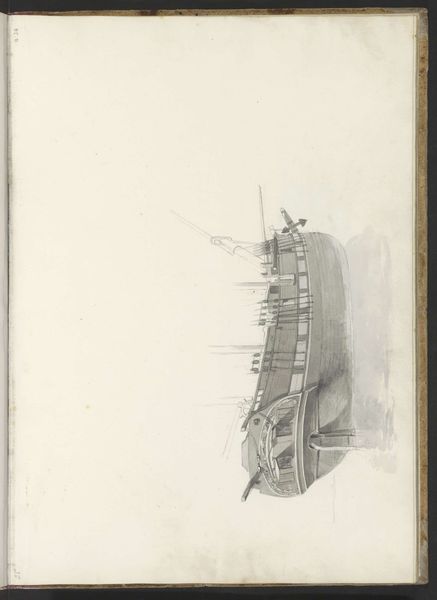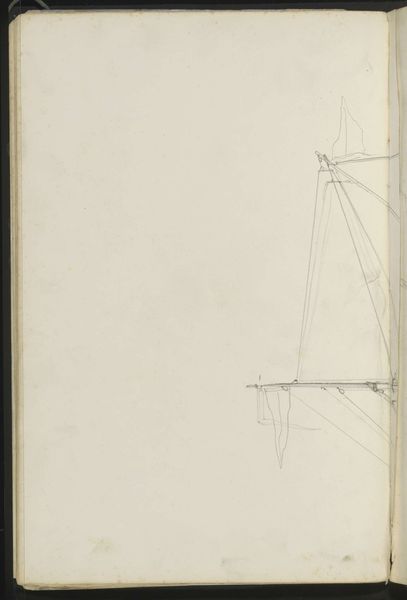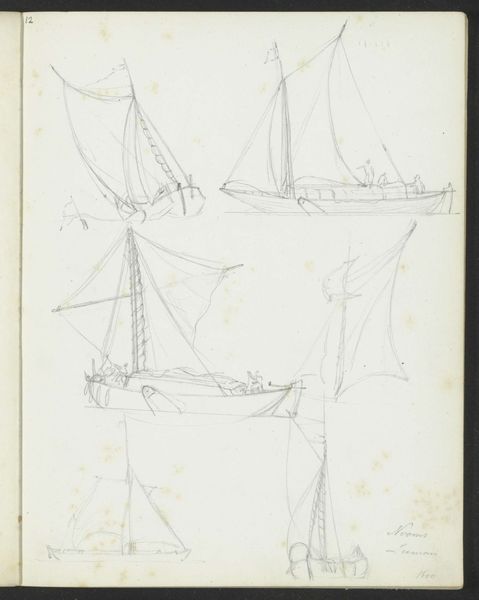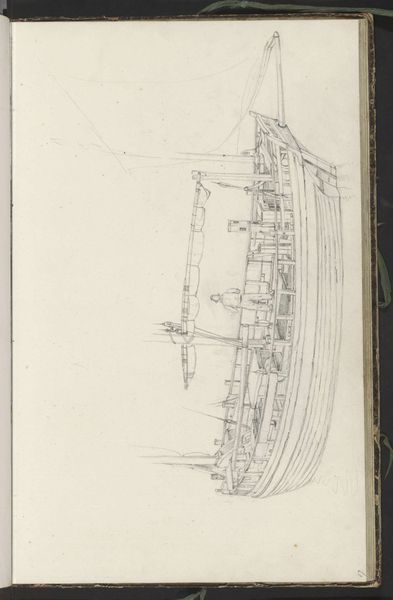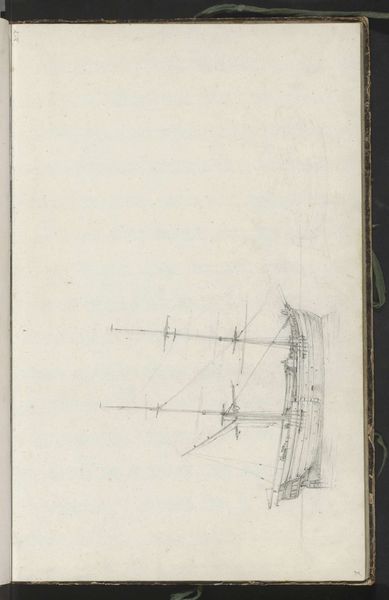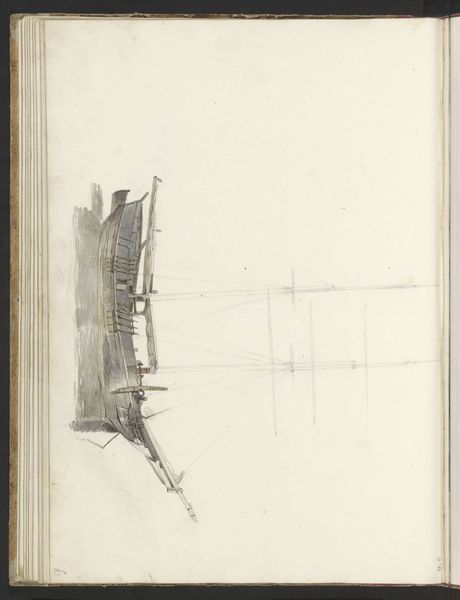
drawing, pencil
#
drawing
#
amateur sketch
#
aged paper
#
toned paper
#
light pencil work
#
pencil sketch
#
incomplete sketchy
#
landscape
#
personal sketchbook
#
romanticism
#
pen-ink sketch
#
pencil
#
sketchbook drawing
#
sketchbook art
Copyright: Rijks Museum: Open Domain
Editor: Here we have Johannes Christiaan Schotel’s "Zeilschip," a pencil drawing made sometime between 1797 and 1838. There's something almost fragile about the sketch, an immediacy that makes me feel like I'm looking over the artist's shoulder. What strikes you most about this work? Curator: I am interested in what this seemingly simple sketch reveals about power dynamics. The ship, a dominant symbol of the era, signifies trade, exploration, and, of course, colonialism. Schotel was working during a time of immense upheaval, so it's vital to consider this work in that context. The fragile, sketchy nature hints at a destabilization of that authority. What kind of story is this ship carrying, and for whom? Editor: That’s fascinating. I hadn’t considered the colonial implications so directly. Do you think the fact that it's a sketch, rather than a finished painting, impacts that reading? Curator: Absolutely. The sketch format makes it more personal, more about the artist's own contemplation. I would suggest this evokes a certain degree of ambivalence. He captures a vessel, integral to the Netherlands’ global presence, but also implicitly questions its cultural and social impact through his use of humble materials. Could it suggest an internal conflict, perhaps? Editor: I see what you mean. There's a quietness to the work that contrasts sharply with the often bombastic portrayals of ships at that time. It makes you consider the human element, both on the ship and in the lands it visited. Curator: Precisely! This challenges us to examine the narratives we inherit, urging us to look beyond the surface of national pride and see the complex realities beneath. This shifts our gaze and considers whose perspectives and histories are being omitted. Editor: That's given me so much to think about. I definitely see this seemingly simple sketch in a completely different light now.
Comments
No comments
Be the first to comment and join the conversation on the ultimate creative platform.
